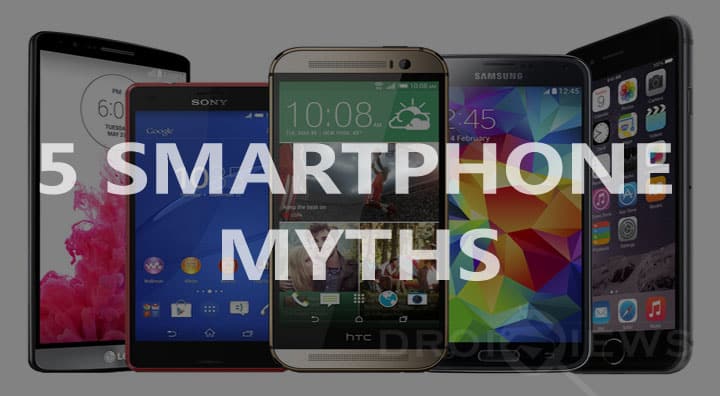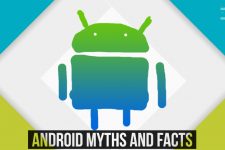
“Did you know that charging your phone overnight will kill your battery?” said my friend. And my first reaction was “dude, what are you talking about? It’s 2015.” So that conversation is basically the reason I’m writing this article.
Via this article we, folks at DroidViews, are going to tackle 5 of the most prevalent smartphone myths today and see if we can do our part in ending the misinformation surrounding today’s smartphones.
Charging Your Phone Overnight Kills The Battery
Well, it’s obvious why this myth is in first position in our list, isn’t it?
People believe that charging your phone overnight will overcharge it, which will harm the smartphone battery.
This myth was true at one point, but with rapid advancement in the field of technology today’s batteries have become smart. The batteries that are used in current smartphones are smart enough to know when to stop the charging process. So putting your phone on charge every night will not harm it’s life cycle. Even if you put it on charge for 8 hours (assuming you sleep for 8 hours), it will stop charging just after 3 hours (again, assuming your phone takes 3 hours to get fully charged).
Don’t Charge Your Phone Until It’s Completely Dead
Batteries that are used in current smartphones are called Lithium-ion batteries and they are a lot smarter than the older batteries i.e. NiCAD and NiMH. Those batteries lasted longer when you let them fully drain before charging back to 100 percent. Modern batteries don’t face such problem because they don’t have “cell memory” like NiCAD and NiMH batteries.
It is recommended that you charge your smartphone before it reaches zero percent. Modern batteries have a specific number of charge cycle and once they reach that cycle they die. When you completely drain your smartphone battery, it counts the beginning of another charge cycle.
However, some experts say that you should let your smartphone battery die completely before charging, every three months. It’s not going to increase the life of your battery, but instead it will calibrate it. This helps the reading that shows on your display to remain accurate.
Apps Running In The Background Should Be Closed To Save Battery And Avoid Lag
Both Android OS and iOS (don’t know about Windows OS) are very effective when it comes to managing the apps running in the background. Apps in your recently used list are not actually running in the background and taking any processing resources, they are there just to provide you an efficient multi tasking experience. If you phone needs more RAM to perform a task, it will automatically remove apps that you are not using.
This myth seems legitimate due to the idea that the processing done in the background is sure to effect system resources and slow down the phone, but that isn’t true. Closing apps will just make them reopen slowly.
Keeping Wi-Fi, Bluetooth, And GPS On Will Decrease Battery
Not true. These functions might stay on all the time but they will not decrease the battery life. The only time these services actually drain your battery is if they are in use. So having Bluetooth turned on, when you’re not using a Bluetooth device, isn’t going to drain your battery any more than having Wi-Fi on when you’re not accessing the network.
Higher Specs Mean Better Performance
This might be the oldest and most believed myth, but like others this one is false too. Higher specs does not mean better performance. That does not mean that a phone with lower specs can easily compete with a phone with higher specs, there are a lot of factors that define better performance; after all end user experience is much more important.
An example that will make this statement more clear to you is camera megapixels. Many believe that more megapixel means a better camera. Apple iPhone generally has an 8 megapixel camera, but it is better than a lot of Android phones with 16 megapixel camera. Other than megapixel the overall quality of the sensor, lens, and image-processing software is also very important.
Another example is that there are several mid range Android phones with better specs than an iPhone (on paper), but that doesn’t necessarily mean the phone is any faster or superior to the one with inferior specs.
So that is it. I hope you find all the information provided in this article useful.







Join The Discussion: